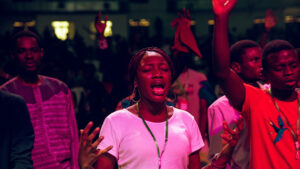A pastor friend told me that planting a church would be the hardest thing I ever attempted. Wise words. But closing a church is tougher. I guess it’s like a divorce; or perhaps like switching off the life support system of a loved one. It’s brutal. Terribly disappointing. Profoundly sad. It comes with a sense of deep loss, a sense of failure. Everything about it feels so wrong.
But we acknowledge that in all of this is the sovereignty of God. In this sense, it wasn’t a failure at all. And if we’re willing to learn, God teaches us in many ways. So here are a few lessons:
The Context of Our Church Plant
Historically, East London, South Africa, is a very well churched city. But today it’s 3rd or 4th generation stuff. Nominalism is entrenched, there seems to be very little robust, biblically faithful, vibrant faith. There are some faithful gospel teaching churches. However they are few and far between.
The spiritual landscape of East London is strewn with superficial and shallow therapeutic, feel-good stuff.
The spiritual landscape is strewn with superficial and shallow therapeutic, feel-good stuff. False teaching is rife. We are the home of TBN Africa, while every other health and wealth sect thrives here. Zionism and AICs are hugely influential. Syncretism abounds. There are several varsity and college campuses in the city, but no decent student ministry among them. All of these were good motivations for a church plant.
We had meetings and conversations with other local pastors and church leaders about our desires to plant a new church. They were in favour of our plans.
We started meeting as a very small house group in late 2013. This grew slowly, and in 2015 we began meeting in public space. We consider this time as the actual beginning of Grace Bible Church in East London.
The Factors That Contributed to Our Failure
1. Unresolved Ministry Baggage
I probably carried baggage with me from my previous ministry context. We did not start as a result of a church split, or anything scandalous. But I did leave a previous church as the result of an unworkable and unhappy situation.
Check yourself for lingering emotional baggage before planting a church.
As a starting group, we evaluated our attitudes honestly. We wanted to stay far away from being a group of disgruntled Christians, planting as a reaction. Regarding my previous troubled experience, I tried to learn the lessons, work through my attitudes, seek grace to move on, and make a clean “emotional” break with the past. But it wasn’t as clean as I’d hoped.
Lesson: Check yourself for lingering emotional and heart baggage before embarking on planting a church—or any other ministry, for that matter. Deep heart surgery is required here.
2. Isolation
As leaders we lacked fellowship and encouragement.
Because we didn’t plant out of an existing church, or within a denomination, we were isolated. Having no local church to support, advise, and encourage us was difficult. We did join a church planting network. And that was invaluable. It gave us credibility, some excellent church planting training, and some great relationships. And we appreciated some good relationships with local pastors. But we lacked committed, consistent, local input into our church. This means we lacked sufficient prayer support, funds, and accountability. As leaders we lacked fellowship and encouragement. This was a serious drawback.
Lesson: Churches plant churches. There needs to be a committed, local support system.
3. The Core Group
As leaders, when we prayed about and discussed our church’s battles, we found ourselves repeatedly coming back to the issue of our initial core group. We didn’t have a big enough start-up group who were willing to put in the hard graft and sacrifice required for planting. Though we had people who attended regularly and who were positive about the ministry of the church, that’s where the commitment of many ended.
We needed a few more couples or families, committed to throwing in their weight 100%—with the mindset that they would give themselves to the plant, no matter what.
The core group of any church plant requires lots of work.
Linked with this, our vision didn’t gain traction. It seems that many people just didn’t “get it.” And as leaders we became aware of this too late. So the relatively few seriously committed members of our core group ended up close to burnout and seriously discouraged.
Lesson: The core group of any church plant requires lots of work. It is essential to have other couples, families and individuals who are committed to do the heavy lifting.
4. The Peculiarities of East London
The younger generations of East Londoners are extremely transient. We lost virtually all our school leavers to varsities in other cities. Most didn’t return. Thus our investment in the younger folk—some real gems—ended in costly goodbyes. Of course, if you look at the wider picture it’s for the kingdom. But it’s difficult to build a church when its constantly leaking strategic people.
Relocation should be considered a kingdom matter. Church planting demands sacrificial commitment.
During the early part of lockdown, three of our families moved. Then we lost four students with great potential, because of employment opportunities. For a small church plant, this is devastating.
Lesson: What we should call for is people to choose to put down roots, no matter what, for the sake of the gospel. Relocation should be considered a kingdom matter. Church planting demands sacrificial commitment.
5. The Usual Suspects, Challenges, and Difficulties of Pastoral Ministry
We also encountered many of the regular challenges of pastoral ministry and church planting. Those included:
- Spiritual lethargy. There appeared to be little genuine spiritual growth. It seemed a consumer and comfort mindset reigned. It was difficult to get our people involved in ministry, and to think or act outside of their own comfort zones. Admittedly, these are perceptions; there could be a lack of balance in my assessment.
- Huge setbacks in making disciples. We put a lot of effort into personal discipleship: one on one, small groups, reading the Bible together, membership classes, trying to get people to read good stuff, showing hospitality, and having hundreds of coffee dates. But the spiritual fallout was immense.
- Finances. We were drastically under-supported.
- Facilities. We had to move the venue three times over just seven years.
- Numerical growth. We would choose depth over breadth every time. But numbers can’t be discounted. And we never quite reached critical mass.
Lessons: Don’t think that a new church plant won’t have the problems of established churches. Newness does not preclude oldness! The idea that you start from a blank slate is a myth. People will default into traditional patterns habitually.
It Wasn’t All Bad
One of my ministry colleagues instructed me to point out that it was a “good, holy, grace-filled church.” So, here are a few of the positives. Despite our failures and limitations:
- We maintained a steady, consistent, winsome gospel witness for seven years.
- The Bible was opened and exegeted week after week.
- The gospel of grace was presented and people were called to repentance and faith.
- The liturgy, worship songs and preaching in dependence on the Holy Spirit exalted Jesus and glorified God.
- We appreciated being part of a small church. We believe there are definite advantages in being smaller.
- Some people grew. They grasped greater biblical truth and grew in their experiential knowledge of God.
- Friendships were formed; relationships were deepened.
- The leaders enjoyed good, constructive relationships.
- Our folk were helped practically and materially through the ministry of the church.
- Through electronic media, we had a wide ministry.
In the End, We Pulled the Plug
We agonised over the matter of closure for a long time. We had stalled, knowing that getting our people into new churches during hard lockdown would be well near impossible. Then it came. A Sunday. The 10th of October, 2021.
No local church will last forever. Yet no power can stop the advance of his church.
It was extremely sad. However, I simultaneously had a great sense of relief. People expressed what the church had meant to them. And they were largely grateful. But it was still rough. God helped us through the mourning.
Though church planting was a constant battle, and though I thought I was “losing it” at times, I have never known such sweetness and grace in my relationship with God. No local church will last forever. Yet no power can stop the advance of his church. A local battle was lost, but the war has been won. All glory to God.














